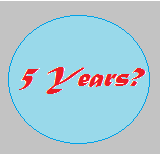Learn from the experiences of two of my clients who accepted job offers from Fortune 50 companies this week. The stories are remarkably similar and offer the job seeker in today’s economy a few lessons.
My first client has invested his entire career into business analysis, helping companies understand what’s happening and how they can use systems to optimize business processes and results. Based on the stories he told me of saving money, improving productivity, enhancing customer service, and continually finding new ways to work smarter, he has been a great employee. Certainly, he has earned more than his paycheck in the contributions he made over the years.
The second client has a technology focus, making devices communicate with each other in complex environments and helping clients get the most from their IT investments. Again, his career has been focused on this work, he is good at what he does, and he has the awards and performance reviews to prove it.
Though their career paths are different, their experiences were similar. Whatever you do in your life’s work, you can probably expect to face the same. Here are the key points I took from both.
Be Patient. These two clients interviewed with household-name companies, and both faced multiple rounds of interviews: one four, the other five. Not only was patience important due to the number of interviews, it was important because it took time. “You’ve done well, and I want to have you meet with the director. He’s out of town next week, so we’ll see what we can do to get you back in about two weeks.” Two, three or four delays like this makes for a long hiring process. The seeker is anxious to move along in the process; the employer is rarely so eager.
There Will be a Test. Maybe more than one. Both companies used online assessments to aid in the hiring decision. These personality and work style assessments are becoming more common, so take a little time to understand their purpose and what you can expect. They can measure emotional factors, your ability to work well under stress and with others, technical aptitude, and any number of other criteria the employer views as relevant. The cost of a bad hire is high, so the effort and expense are worth it to them. For you, it means more work and the potential for elimination.
Keep Your Search Active. While both clients felt early on that they were doing well, neither was willing to assume the hiring process would end in their favor. It can be tempting to slow down when a potential job looks likely. Don’t do it. I have seen people go three, four or five rounds only to be told, “We are holding off on filling this position,” or, “We went with an internal candidate.” It happens. A lot.
Blocking and Tackling. Or, more appropriately, follow up and thank you notes are important. Most people do a pretty good job interviewing, at least if they are qualified for the position. Many, though, fall short when it comes to post-interview communication. Be sure to keep employer contacts warm and active with solid, timely, error-free notes, emails or cards. When appropriate, try to add value at each touch point. Show you want the job. You might refer to an article you read or an idea you’ve had. Both did this and felt better about being active at keeping the conversation going.
The difficult truth is that job searching is a challenging, thankless task until you get the job. Realize you aren’t alone, though. If you need to connect with others, find a networking group or job search work team. Check with your state’s employment services office for ideas. Having a friend who is facing the same challenges can make a big difference in a months-long search campaign.
As for our two clients, both have offers in hand. They both start their new positions around New Year’s and are looking forward to getting back to work. Keep at your search, and you will soon be doing the same.



